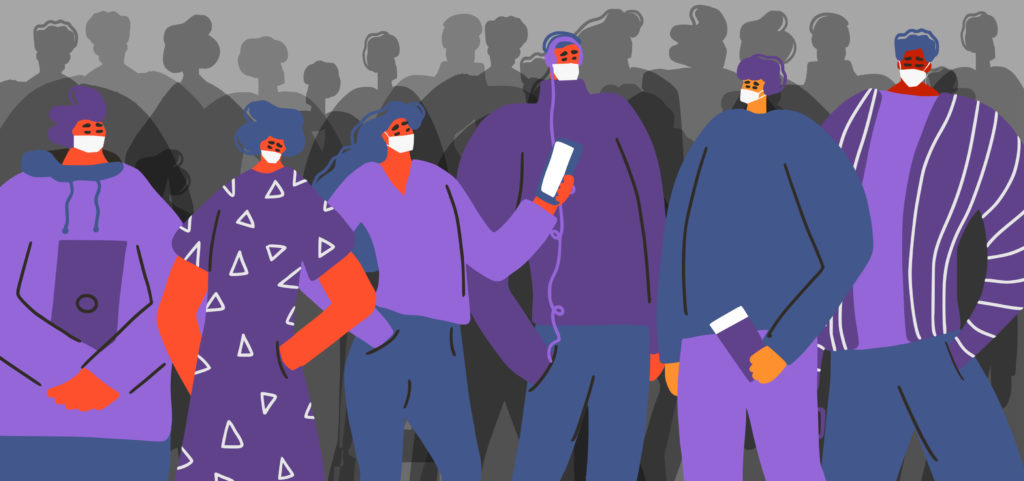Amid the global pandemic, we have seen a rise in racist incidents toward Chinese and Asian people, who are being racially profiled for causing and spreading the coronavirus. Many of these situations involve strangers engaging in verbal confrontations and in some cases, physical violence.
Instead of condemning this anti-Asian and anti-Chinese racism and following the World Health Organization’s guidance not to name a virus based on geographic location, some media outlets and political leaders, including the President and his advisers, have fueled this racism through fearmongering by routinely referring to COVID-19 as the “Chinese virus.”
The World Health Organization’s Director, Tedros Adhanom Ghrebreyesus, has said, “Stigma, to be honest, is more dangerous than the virus itself.”
At CSSP, we recognize that this public scapegoating of Asian people (and other people of color) and the maligning their cultural practices as problems resurfaces this country’s history of anti-Asian racism and xenophobia. Shifting the blame to Asian people, here and abroad, sets off a ripple effect of condoning racism that threatens the economic, physical, and mental well-being of Chinese and Asian Americans. It has served as a revolving political device, diligently working to justify excluding groups already marginalized—in turn, shifting responsibility away from the government to develop meaningful policies and interventions that help communities of color, already more likely to be in health-threatening environments. The precarious narratives are jeopardizing the health of all children and families, distracting us from addressing the current administration’s ineffective response to provide necessary test kits and solve the shortage of ventilators and personal protective equipment needed by health care workers.
The pathologizing of Asian people, based on dangerous ideologies linked to race and eugenics, has also gone on to justify racist policies and further acts of hate.
This anti-Chinese/-Asian racism is the latest chapter in our long national story of the “Yellow Peril.” In the 1800s, as Chinese laborers built railroads and contributed to the development of the American West, White labor unions, who feared the labor competition, lobbied to ban Chinese laborers from entering the United States, incorrectly claiming that strains of disease from the Chinese were more dangerous than White ones. This biologically essentialist argument ignored the oppressive circumstances that led Chinese laborers to live in unsanitary, cramped conditions in the first place.
Congress then passed the Chinese Exclusion Act in 1882, the first immigration law based on race, banning Chinese laborers from entering the United States. In 1900, the first alleged case of bubonic plague happened in San Francisco’s poorest and most populated district—Chinatown—and city officials decided to quarantine the district. Although typically transmitted by rodents and fleas, the plague was misleadingly framed as a “racial disease.”
Even though the Centers for Disease Control and Prevention (CDC) report that race is not a factor in contracting or spreading COVID-19, we have seen that White supremacist ideologies influence the continued racialization of diseases, which can promote exclusionary policies and devastate communities of color under the false premise of “national security.” While many small businesses and service industries are now suffering economically due to the pandemic, some of the earliest places to experience massive economic losses were Chinese restaurants and also businesses located in Chinatowns across the country.
At CSSP, we condemn this use of racist scapegoating by the government, sidestepping responsibility to effectively resolve this pandemic, escalating fear and violence toward Asian Americans, and promoting exclusionary policies that endanger the health and safety of all communities. These current narratives blaming Asian and Chinese Americans for spreading COVID-19 have real-life consequences—with over 600 reported U.S. cases of racists acts against these communities. As a response, Asian American Pacific Islander community-based organizations have taken launched a reporting center for individuals to report experiences of racism related to COVID-19.
It is our collective responsibility to denounce the racist rhetoric that can lead systems to not only promote racist, nativist policies but also distance themselves from providing the necessary supports and protections to vulnerable communities. This scapegoating distracts us from focusing on what matters—finding meaningful policy solutions to improve the public health infrastructure and addressing the public health risks that the virus has on all of us. It is important to confront how this nation’s history of racist fearmongering can prevent this country from solving the actual problems and, in turn, jeopardize the families and children, who are already most impacted by this crisis.
